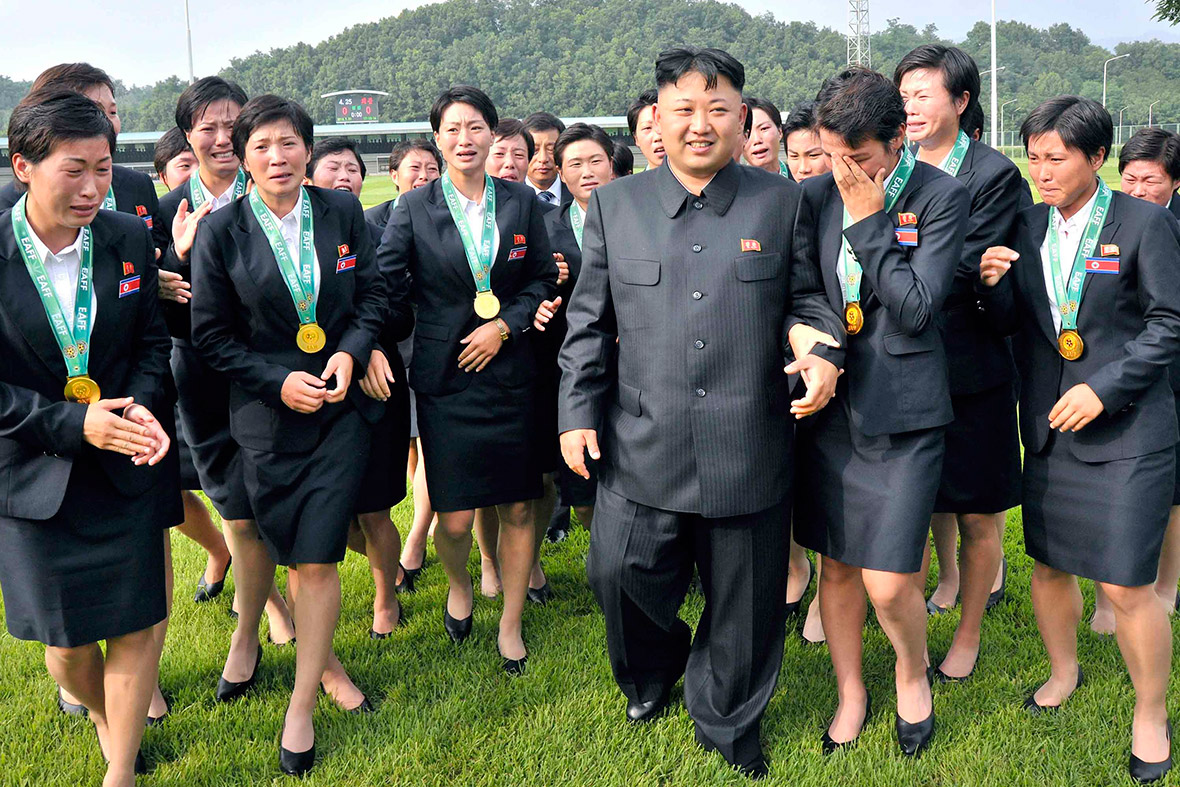AASHNA MALPANI WRITES – In the streets of Hyesan city, North Korea, a woman in her forties makes ends meet by selling clothes and textiles to local markets. A guard or a police officer stops her, demanding she follow him to an empty room or other such location. She complies. She is raped by someone again.
This is the story of Oh Jung Hee, a former trader from Ryanggang province. Oh is just one name on a long list of women who have been coerced into sexual activities by male officials in the country, according to Human Rights Watch.
In an exhaustive interview conducted with 54 civilians and eight former officials who have fled the country since Kim Jong-un assumed dictatorship in 2011, the non-profit organization revealed that men in power, ranging from high-ranking party officials to prison guards, have been rampantly raping women: “What can we do? They consider us (sex) toys…. We (women) are at the mercy of men. Now, women cannot survive without having men with power near them,” Oh told Human Rights Watch.
Oh’s point: There seems to be no other option than to comply with the perpetrator—the alternative poses a bigger risk—because if a woman “picked” by an officer refuses, she risks death, prolonged sexual violence, beatings, forced labor, or relocation to a poorer neighborhood. “Having sex with men who have power over you or letting them touch all over your body is a necessity to survive,” a 20-something trader shared. “It never occurred to me that I could or would want to do anything about it. It was just how things are.”
 Artwork: Human Rights Watch Report, “You Cry at Night but Don’t Know Why”
Artwork: Human Rights Watch Report, “You Cry at Night but Don’t Know Why”
This spike in sex crimes came shortly after Kim loosened restrictions on internal trade, allowing families to earn their daily wages by selling goods and services. It is a tricky domestic policy, as women are the dominant breadwinners in North Korea. While men suffer state-sanctioned extortion of wages (handed over to the republic), it’s women who earn—and keep—their savings. These women workers thus tend to stay out of the house more, making themselves vulnerable to the very people sworn to protect them–police officers, train conductors, and guards.
The threat of social stigma, imprisonment, victim-blaming and shaming, as well as further physical assault perpetuate this corrupt system, the New York Times suggests. The Human Rights Watch report dug deeper, claiming women are taught to normalize sexual abuse and violence so that they don’t feel the urge to demand accountability.
A 2014 investigation of human rights abuses in North Korea, conducted by the United Nations Commission of Inquiry, stated that “Officials are exacting penalties and punishment in the form of sexual abuse and violence as there is no fear of punishment.”
It is doubtful that the country will make amends anytime soon. South Korea and the U.S have been hesitant to decry these gross human rights violations in the face of ongoing de-nuclearization talks. As Kenneth Roth, executive of Human Rights Watch told the Times, “North Korean women would probably say ‘Me Too’ if they thought there was any way to obtain justice, but their voices are silenced in Kim Jong-un’s dictatorship.”

